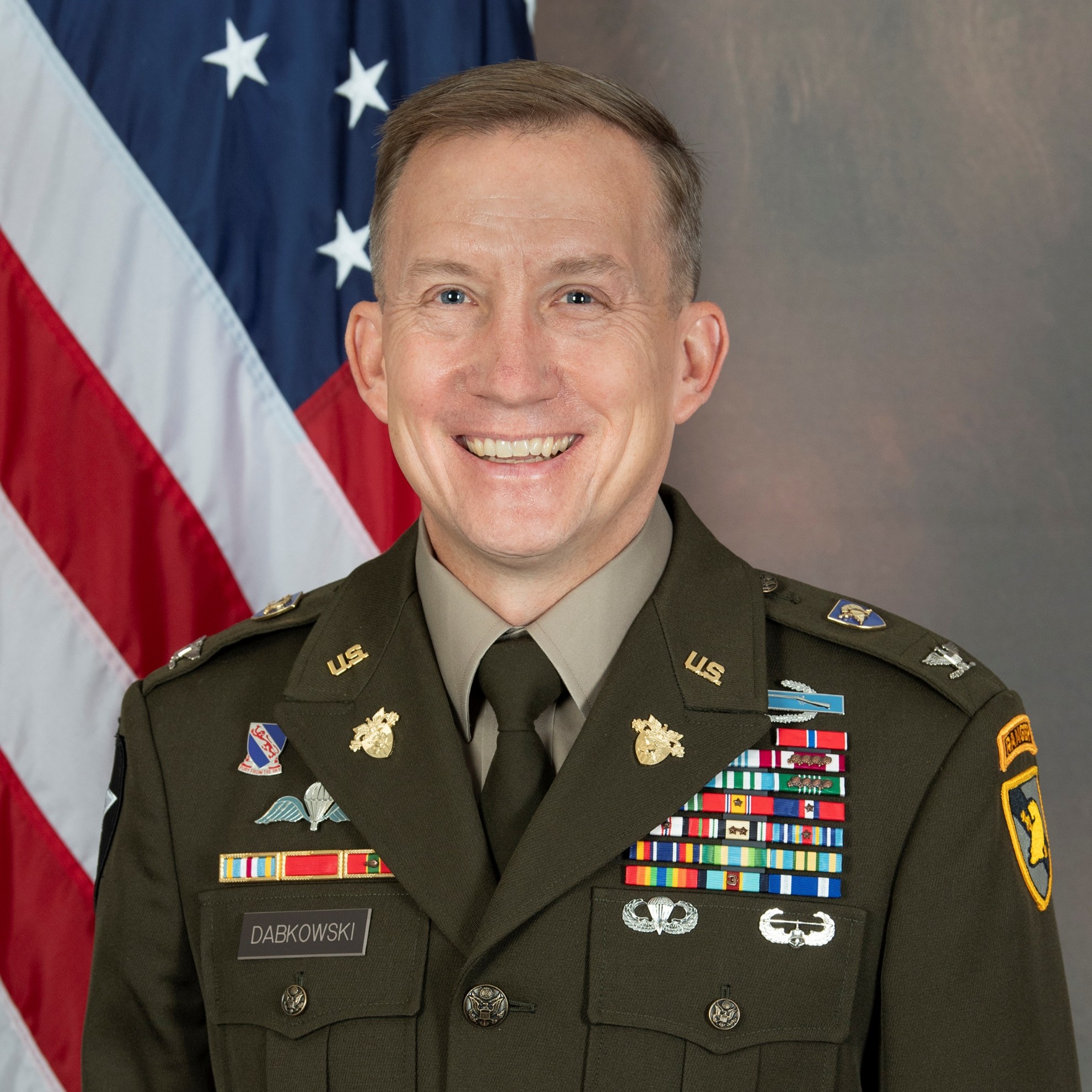
COL Matthew F. Dabkowski, Ph.D.
Associate Professor
Deputy Department Head
Systems Engineering
COL Matthew Dabkowski is the deputy department head of the United States Military Academy’s (USMA) Department of Systems Engineering (DSE). A 1997 graduate of USMA, he received his commission as an Infantry officer, and his first assignment was with the 1-508th Airborne Battalion Combat Team (Vicenza, Italy), where he served as a rifle platoon leader, an anti-tank/heavy weapons platoon leader, and a company executive officer.
He subsequently commanded rifle and headquarters and headquarters companies in the 5-20th Infantry Regiment (Fort Lewis, Washington), the first battalion in the Army to field the Stryker combat vehicle. In this capacity, he deployed between November 2003 and November 2004 in support of Operation Iraqi Freedom.
In 2007, COL Dabkowski obtained an M.S. in systems engineering from the University of Arizona, and he transitioned to the Army’s Operations Research / Systems Analysis Functional Area (FA49). His first FA49 tour was in USMA’s DSE as an instructor and assistant professor.
Following this teaching assignment, COL Dabkowski was assigned to the Army Training and Doctrine Command Analysis Center (TRAC; Fort Leavenworth, Kansas), where he deployed in support of Operation Enduring Freedom as the chief of TRAC’s Data Cell Forward. In 2016, he received a Ph.D. in systems and industrial engineering from the University of Arizona, where he deployed in support of Operation Freedom's Sentinel as the military assistant to the Commanding General of Combined Joint Task Force – Horn of Africa.
In recognition of his contributions to military operations research over the past decade, COL Dabkowski has received the Army’s Dr. Wilbur B. Payne Award, TRAC’s LTC Paul J. Finken Memorial Award, the Military Operations Research Society’s (MORS’) Wayne P. Hughes Junior Analyst Award, Military Operations Research Society's David Rist Prize, and the Army’s Operational Analysis Award.
COL Dabkowski has been married to wife Nicole for over 25 years, and they are the proud parents of four wonderful sons and one incredible daughter.
Ph.D., Systems and Industrial Engineering - University of Arizona
M.S., Systems Engineering - University of Arizona
B.S., Operations Research - U.S. Military Academy